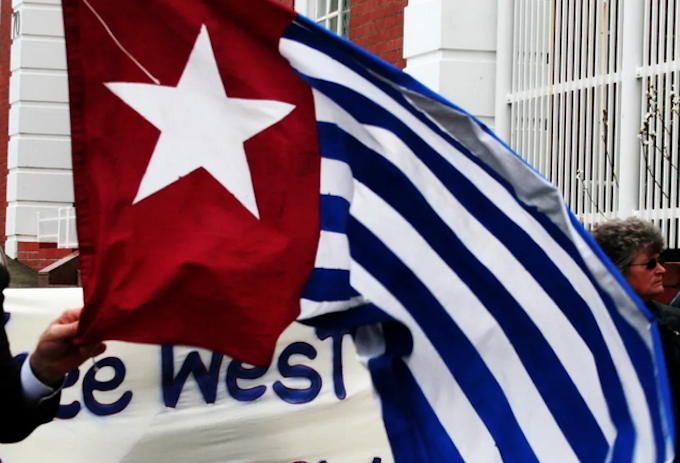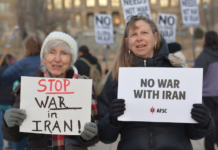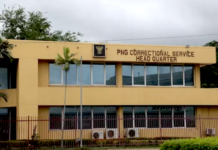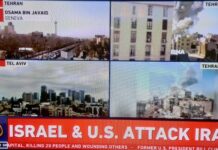
By Susana Suisuiki, RNZ Pacific Waves presenter/producer
A West Papuan activist says the transfer of four political prisoners by Indonesian authorities is a breach of human rights.
In April, the men were arrested on charges of treason after requesting peace talks in the city of Sorong in southwest Papua. They were then transferred to Makassar city in Eastern Indonesia and are awaiting trial.
Last week, protesters gathered in front of Sorong City Municipal Police HQ opposing the transferral, but the demonstrations turned violent. as protests about civil rights swept across Indonesia.
- READ MORE: West Papuan civil society groups protest over brutal security forces crackdown – 17 arrests
- Why are antigovernment protests taking place in Indonesia?
- Other West Papua reports
Police had reportedly used “heavy-handed” attempts to disrupt the protest but was met with riotous responses, with tyres set on fire and government buildings being attacked.
A 28-year-old man was seriously injured when police shot him in the abdomen.
Seventeen people were arrested for property damage, while police are still search for former political prisoner Sayan Mandabayan accused of being the “organiser” of the protest.
West Papuan activist Ronny Kareni told RNZ Pacific Waves the protest was initially meant to be peaceful.
He said the four political prisoners being far from their home city had raised concerns.
‘Raises many concerns’
“What the transfer really transpired, is it raises many concerns from human rights defenders and many of us arguing that the transfer violates the principles of the Article 85 of the Indonesian Procedure Code which requires trials to be held where the alleged offence occured.”
Kareni said the transfer isolated prisoners from their families, community support and legal counsel.
Indonesian authorities say the group were transferred due to security concerns for the trial.
Kareni said the movement to liberate West Papua from Indonesia would continue to be seen as “treason”, even if there was peaceful dialogue.
“There is no space for exercising your right to determine your future or determine what you feel that matters to you,” he said.
“Just talking peace, just to kind of like come to the table to offer peace talks, is seen as treason.”
This article is republished under a community partnership agreement with RNZ.













































